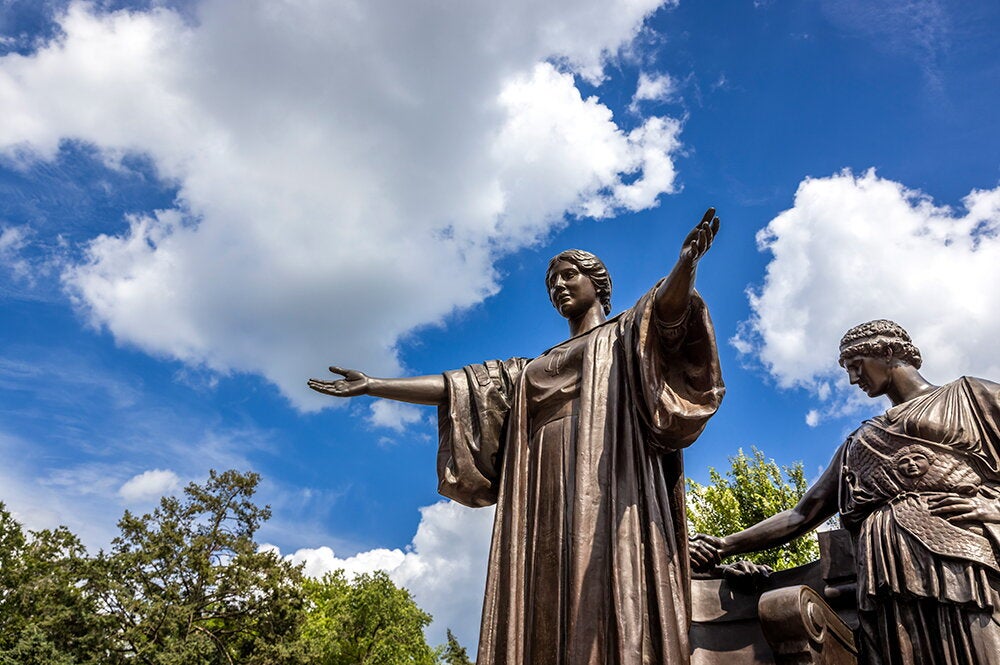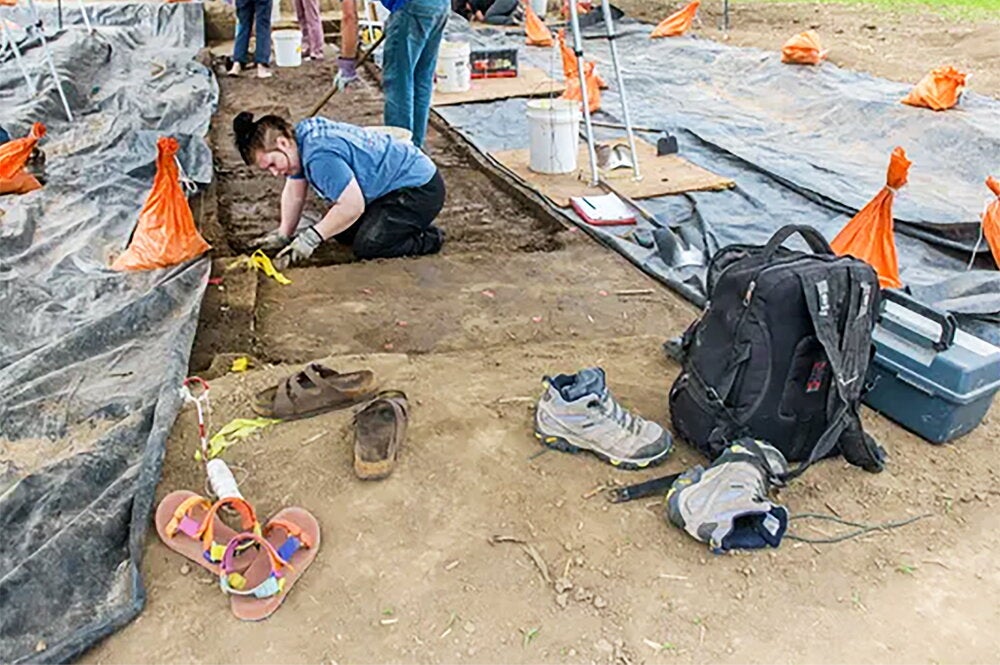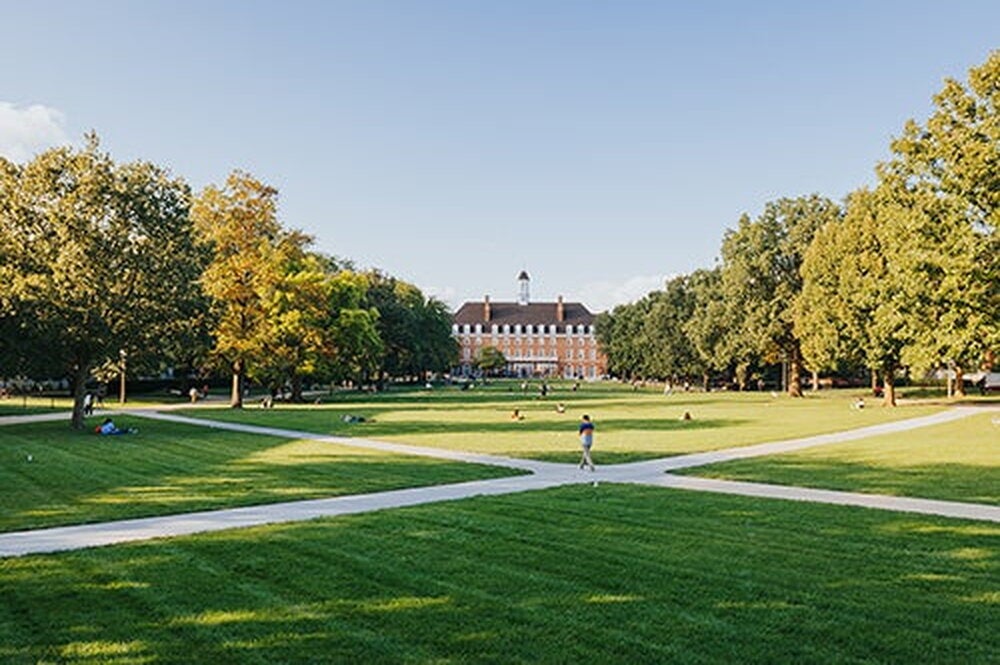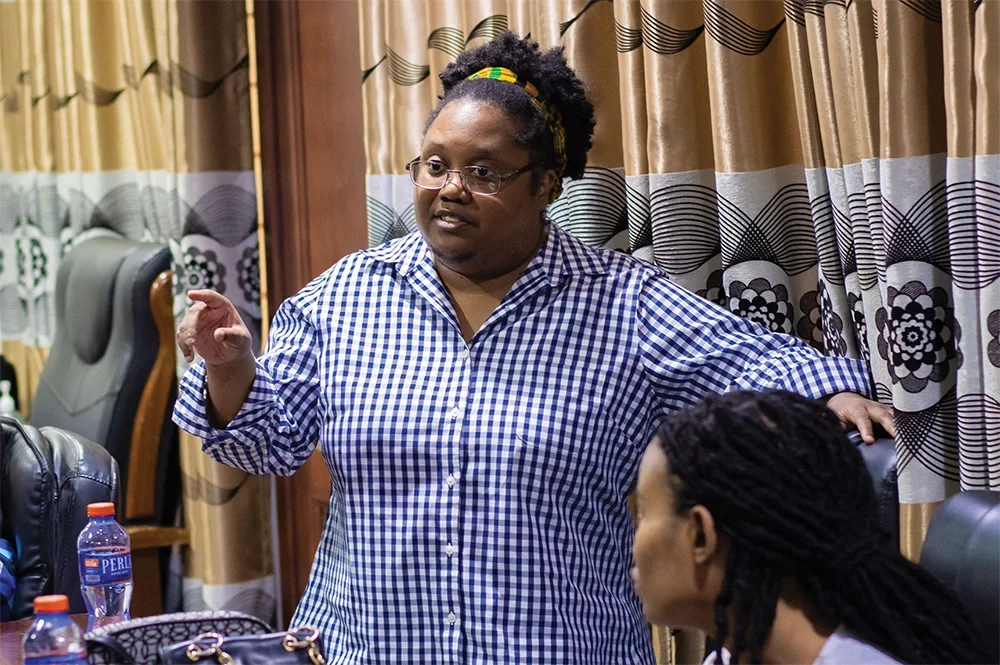
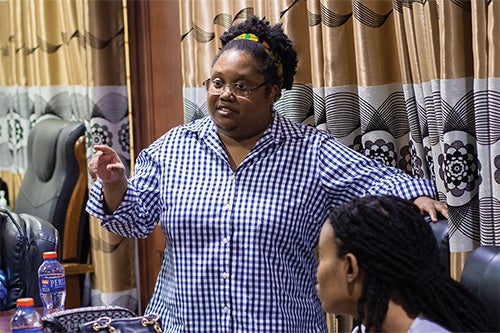
Lakisha Tawanda David’s career represents, in many ways, a lifelong search for identity.
David, a professor of anthropology, uses her research to reunite those with severed ties to their ancestry through DNA connections. One branch of her work utilizes computational genetic genealogy to recreate family trees that have been lost to history. The other branch focuses on understanding the psychological experience of recovering information about an individual’s descent in terms of identity and sense of belonging.
On her faculty page, David describes this work as a “profound quest.”
From a young age, David wanted to better understand herself, her roots, and her family, but, like many African Americans, the transatlantic slave trade had destroyed the known connections between herself and her ancestors in Africa.
From North Carolina, David recalls her mother insisting that their African heritage was important even if they couldn’t trace them. As a girl she never imagined that her own work would help her resolve the mystery of her ancestors’ identities.
After graduating high school, David studied computer science for a year before becoming a paratrooper at the former Ft. Liberty in North Carolina. She served for two years before being honorably discharged for medical reasons.
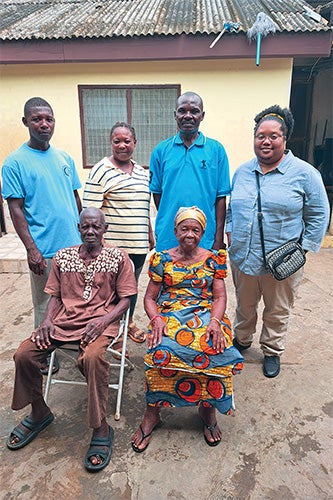
During her service David also assisted with military phone software, and after leaving the military she worked for Nextel before returning to North Carolina. It was there that David, encountering family and personal struggles, entered an uncertain chapter in her life, working odd jobs and even experiencing homelessness, staying with family, friends, or in shelters. She kept her mind occupied through long walks and trips to the local library where she would peruse the collections and conduct research on the computers.
David didn’t know where her next step would be, she said, but she was certain that it would come. It finally came one day during mealtime at a homeless shelter in Lumberton, North Carolina, when the manager asked her: “Why don’t you use the GI Bill?”
The GI Bill is a veteran benefit that helps pay for college and collegiate expenses.
“For some reason, even though I was aware of the opportunity, I hadn’t recognized that I was at a point in my life where I could actually take advantage of it,” David said. “Before that, I had been the legal guardian of my siblings, and then after that, it was just about surviving. But at that moment, there was nothing really stopping me. When the manager said it, it just clicked.”
David had an interest in sustainable construction, and so, with help from the GI Bill, she went on to earn a degree in construction management at North Carolina Agricultural and Technical State University in 2011. One good thing led to another, and she went on to earn a master’s degree in city planning at MIT. Her next step was the University of Illinois, where was accepted into the PhD program for urban planning.
Originally, David’s PhD was focused on creating sustainable neighborhoods in African communities, but one day David read a news story about how a group of African Americans learned that they had ancestors from Cameroon through DNA testing and traveled to Cameroon. David couldn’t stop thinking about it and decided
to shift her studies to identity and DNA testing.
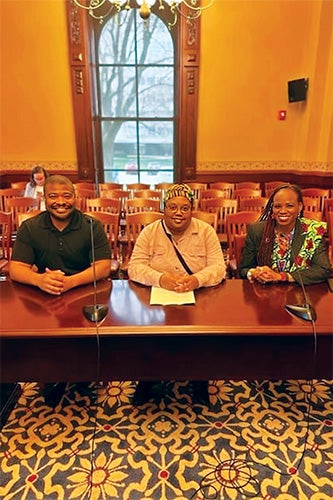
It was tough as a new PhD student to convince her advisors about how African Americans reshaping their identities through DNA testing led to community development without knowing existing research on the topic. However, a faculty mentor agreed to take David and another student to see “Bound: Africans versus African Americans,” a 2014 film by Perez Owino that explores tensions between Africans and African Americans after hundreds of years of separation. It helped make David’s point.
David found support with Christy Lleras, a professor of human development and family studies, who immediately engaged with David and her ideas. David transferred into the Department of Human Development and Family Studies graduate program and shifted the focus of her PhD to identity development based on genealogy and ancestral tracing.
In 2018, during her PhD studies, David experienced a breakthrough while she was in Ghana for her research project, “Northern Ghana Family Reunification.” She had been working there for a year collecting DNA samples when curiosity got the best of her and she decided to compare her own genome—she had already tested herself and her family through multiple companies such as 23andMe, Ancestry, African Ancestry, and others—to those they’d collected.
“That’s when I discovered I might be related to someone in the project,” David said. “I thought it must be a mistake, so I used some of the typical tools that genetic genealogists rely on to verify relatedness. After reviewing the evidence, it was clear that I did, in fact, have living relatives in Ghana.”
Touched deeply by the discovery, David approached the discovery in a scholarly way. She noticed that it took a few visits to separate her own romanticized feelings of Ghana as her motherland with the reality of Ghana.
“Going there, it felt like Ghana was my homecoming,” David said. “It took some time for me to separate myself from that. It is also a country, a place where people live, a place with multiple stories and perspectives.”
David earned her doctorate in human development and family studies in 2020. She attended the Ethical, Legal, and Social Implications for Genetics and Genomics post-doctoral program at the University of Pennsylvania for two years before returning to U of I to take a position as a tenure-track professor in anthropology in 2023. Today, through her academics and research, David has gone full circle from seeking her own history to guiding others to the root of theirs.
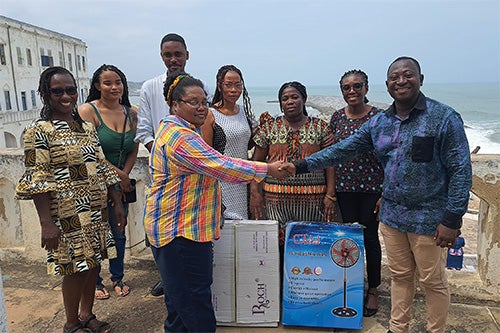
The work is complicated not only scientifically but emotionally. Her research is just beginning as she has built a team of three that collects DNA samples and genotypes that can be analyzed in her computational lab. The analysis of genotypes is done by herself, a graduate student, a research assistant at the University of Cape Coast in Ghana, and her counterpart Richeal Mills, the principal investigator of the Ghana portion of the project. Together they support The African Kinship Reunion (TAKiR), a project led by David which works to reunite families with science and genetic testing while also providing support for when those connections occur.
“The TAKiR project aims to contribute to identity exploration, allowing individuals to piece together their family history and understand their story within a broader cultural narrative, thereby also contributing to the emotional and psychological well-being of participants,” the program description reads, on the website.
“I originally start from the African American perspective, and I tried to branch my work off of that,” David said. “It’s understanding what having this unknown history does for people of African descent who are recovering this information. I wanted to try to understand this in the context of identity, sense of belonging, and identity development in adults.”
Earlier this year, David worked with Illinois State Rep. Carol Ammons of Urbana and graduate fellow Jailene Aguirre to co-write and pass an Illinois General Assembly resolution creating the Family Roots Genealogy Pilot Program. David will recruit 1,600 African Americans in Illinois to be tested and possibly reunited with relatives in Africa.
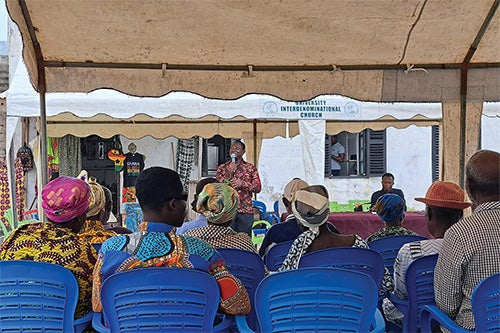
Having gained so much perspective on identity formation, David at times has a hard time believing how far she’s come in her own life, from the military to homelessness to, now, a budding career as a professor.
“It’s still scary,” David said. “Maybe just over the past month, I feel like the other shoe is going to drop. I feel like I’m in an increasingly stable place but, still driven to create new opportunities for myself at this new higher level.”
While David is one of the first in her family to go to college, her relatives try to understand the work she is doing and are first to brag about her accomplishments. David recalled a lighthearted attempt, with the help of AI, to explain her work to her family.
“I tried to use Google’s new product called Notebook LM which allows you to upload information, and it turns that into a podcast,” David explained. It helped—not that it changed anyone’s feelings.
“My family, especially my sister, likes to say they’re so proud of me,” David said, “even though they don’t understand what I do.”
Editor's note: This story first appeared in the Spring 2025 issue of The Quadrangle.
